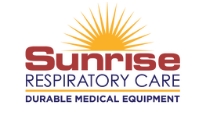Sleep Apnea Support
Diagnosis of Sleep Apnea
We offer information about sleep apnea including symptoms, risk factors, diagnosis and treatment.
A board certified sleep medicine physician can diagnose obstructive sleep apnea using an in-lab sleep study or a home sleep apnea test. A board-certified sleep physician has training and expertise in diagnosing and treating sleep apnea.
The physician will need to know your symptoms, and whether they began when you gained weight or stopped exercising. If you can, ask a partner or roommate or relative if they have ever heard you snore loudly or make choking noises in your sleep.
You may also need to keep a sleep diary for two weeks. This includes information about what time you went to bed each night, when you woke up in the morning and how many times you woke up each night. This will help the doctor see your sleep patterns, which could contain clues about how to diagnose and correct your sleep problem.
A sleep medicine physician will also try to determine if there is something else that is causing your sleep problems or making the symptoms worse, such as:
- Another sleep disorder
- A medical condition
- Medication use
- A mental health disorder
- Substance abuse
An objective evaluation of your sleep may be needed before your board certified sleep physician can make a diagnosis. Options include:
In-lab overnight sleep study
This type of sleep study requires you to stay overnight at a sleep center, in a bed that may resemble a hotel room. You will sleep with sensors hooked up to various parts of your body. These sensors record your brain waves, heartbeat, breathing and movement. Doctors usually recommend a sleep study for more complex cases. An in-lab sleep study is the more expensive option. But it it is covered by most health insurance plans. An overnight sleep study also provides your doctor with the most complete information about your sleep. Learn more about an overnight sleep study.
Home sleep apnea test
Some patients with high risk factors for obstructive sleep apnea and no other medical disorders may be candidates for a home sleep apnea test. This type of sleep study lets you sleep in the comfort of your own home while a small monitor collects data as you sleep. The testing equipment differs in that it is less complicated than what is used in an overnight sleep study. Sleep center staff will show you how to hook up the testing equipment yourself. After your home sleep apnea test, you can take the device back to the sleep center or send it by mail.
Other apps and sleep tracking devices may claim to be able to detect sleep apnea. But their results can be unreliable. Be sure to discuss these devices with your sleep medicine physician.

After your sleep study or home sleep apnea test, you will schedule a follow-up appointment to discuss the results. If you are diagnosed with sleep apnea, your doctor will discuss your treatment options with you.
Let Sunrise Respiratory Care Answer Your Questions!
